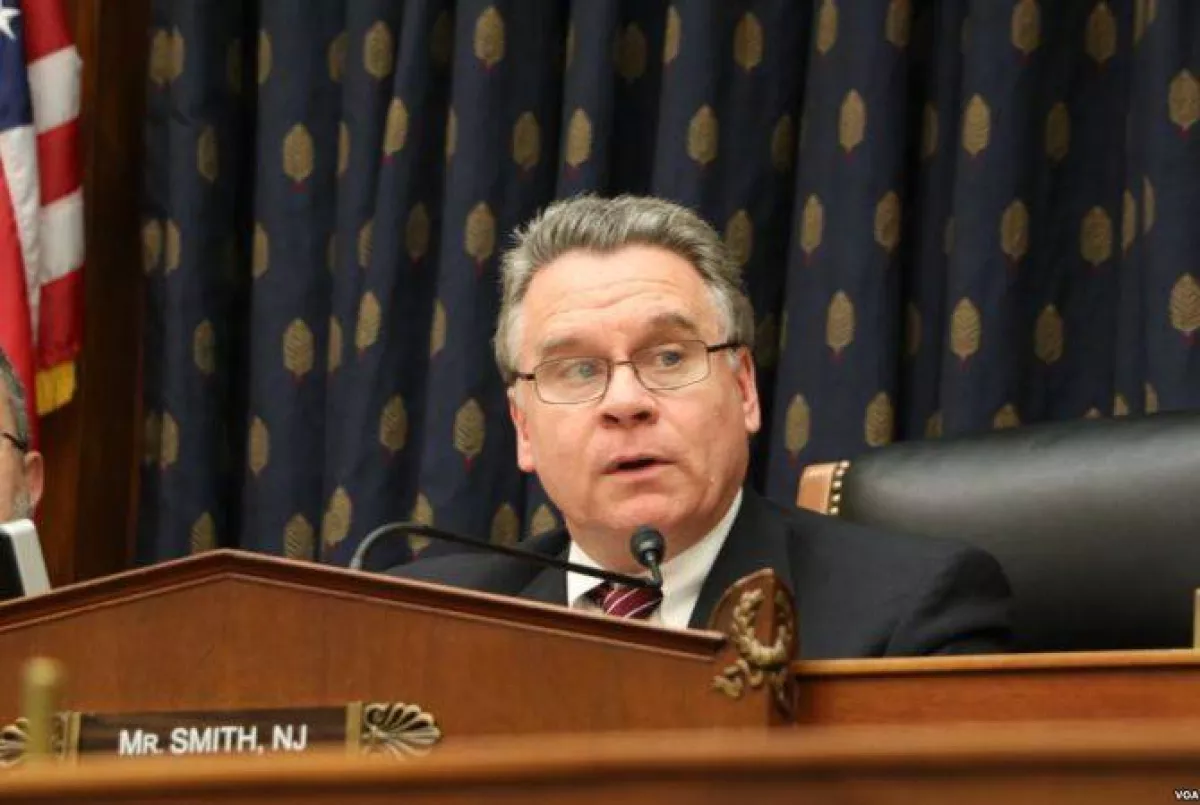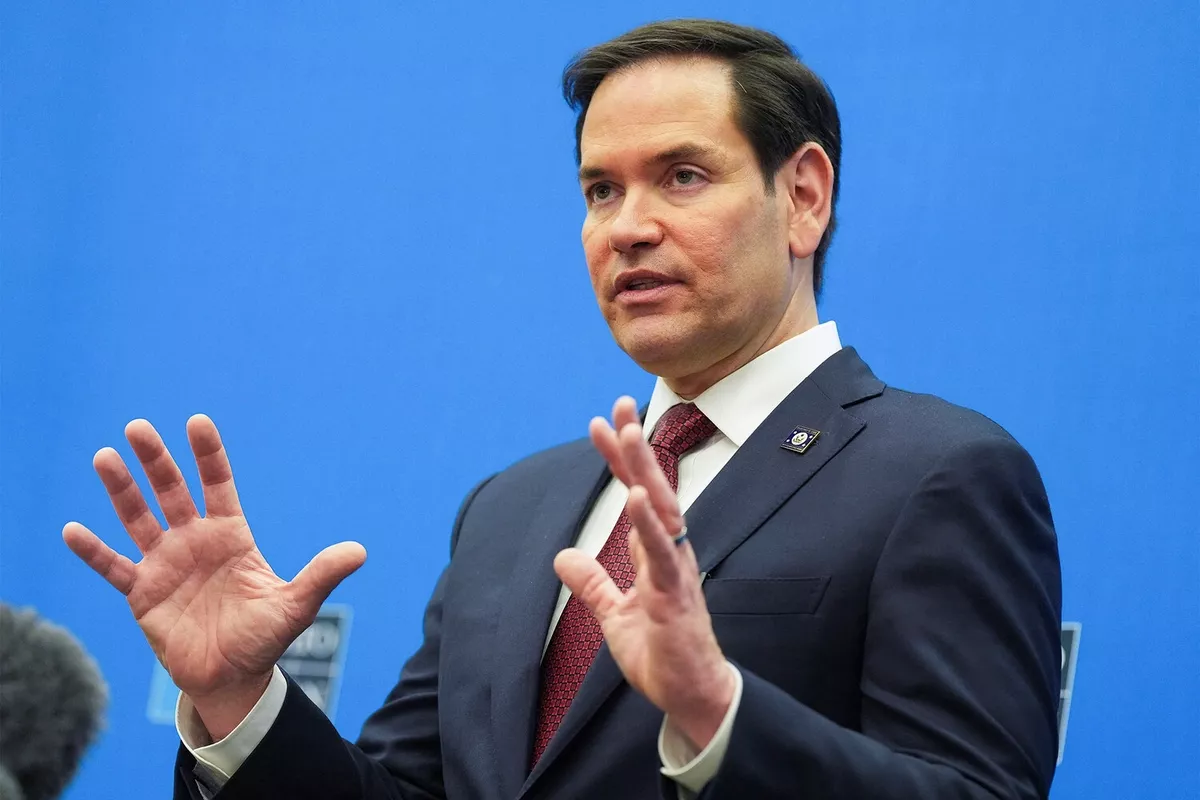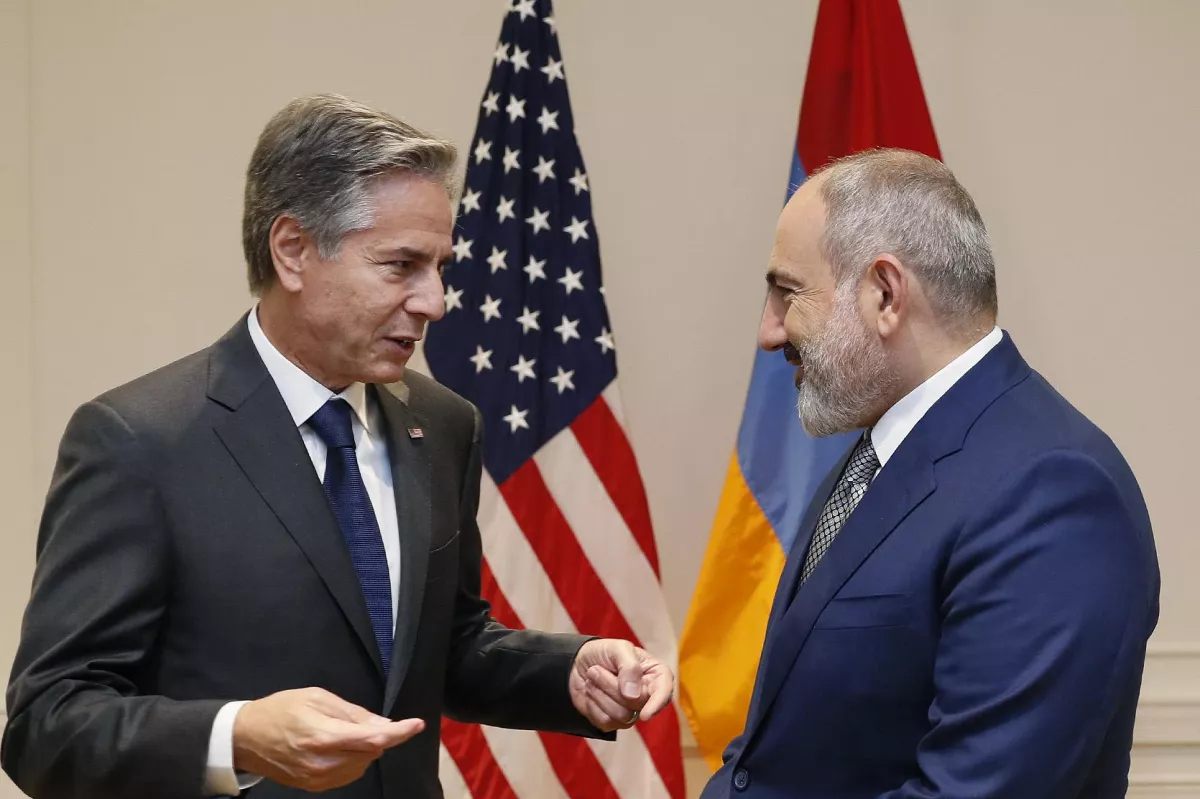Rubio’s point Requiem for Armenian lobbyists
The White House administration is paying close attention to the South Caucasus region, especially the Armenia-Azerbaijan settlement. This fact is confirmed by the recent statements of Secretary of State Marco Rubio, made during hearings before the U.S. House Foreign Affairs Committee. In response to provocative questions from Congressman Christopher Smith, co-chair of the Tom Lantos Human Rights Commission in the U.S. Congress and known for his pro-Armenian stance, Rubio stated: “As far as Azerbaijan is concerned, our core focus has been on trying to establish peace between Azerbaijan and Armenia. There's a real risk of conflict there that we're trying to prevent from happening.” It should be noted that Christopher Smith once again aimed to smear Azerbaijan, accusing the country of allegedly “committing genocide against Armenians” and calling on the U.S. Secretary of State to take measures for the release of “political prisoners” in Azerbaijan.
This is far from the first such outburst by this Republican congressman from New Jersey, who for many years has been serving global Armenian interests and diligently working off substantial fees from Armenian businessmen. For example, in December 2015, Smith personally initiated a provocative bill called the “Azerbaijan Democracy Act.” However, despite the efforts of this Armenian loyalist, the bill did not receive support from a single member of Congress. In the same year, Smith, as chairman of the U.S. Commission on Security and Cooperation in Europe, also known as the Helsinki Commission, organised hearings within the commission related to the “100th anniversary” of the so-called “Armenian genocide.”

Overall, Smith’s personal record of services to global Armenian interests is quite impressive, which is why the Armenian National Committee of America (ANCA) awarded him the highest rating, “A+,” for his “activities” in the U.S. Congress. However, despite the considerable credentials of this congressman in advancing Armenian interests, this time his provocation was not successful.
Secretary of State Marco Rubio clearly outlined the priorities of American policy in the region: “As far as Azerbaijan is concerned, our core focus has been on trying to establish peace between Azerbaijan and Armenia…,” signalling that the U.S. is committed to peace in the region overall and does not support the position of either side.
“We may not agree with the system of government; we may wish it were different, but the truth of the matter is that we have to deal with countries, in many cases, that perhaps don't have ideal models. But we have to deal with them in our national interest, and we need to balance all of these things together — our national interest and diplomacy — without surrendering and finding opportunities to further interests such as human rights. And Azerbaijan provides us an opportunity to do that in the context of the broader peace that we're trying to establish there,” Rubio continued, his words implicitly underscoring the idea that the United States does not intend to interfere in Azerbaijan’s internal affairs.

These statements by Rubio fully align with Donald Trump’s policy, which is based on the principle of non-intervention by the United States in the internal affairs of other countries. He adhered to this position during his first presidential term and continues to be committed to it today.
This is clearly illustrated by Trump’s own remarks. For instance, in December 2024, Trump stated that the U.S. should not be involved in the conflict in Syria. More recently, while in Saudi Arabia, he sharply criticised previous American administrations for military interventions in the Middle East, accusing them of destroying countries under the guise of “nation-building,” mentioning Afghanistan, Iraq, Syria, and other states. Just days ago, he expressed the view that Americans should not have interfered in the conflict between Russia and Ukraine.
In other words, the current occupant of the Oval Office has completely undone the Biden administration’s policy, which in relation to the South Caucasus in general—and Azerbaijan in particular—took a one-sided stance, choosing Armenia as its favourite. It is worth recalling that in January of this year, even before Trump’s inauguration, then-Secretary of State Antony Blinken and Armenian Foreign Minister Ararat Mirzoyan signed a strategic partnership charter in Washington. At the time, Blinken even expressed confidence that this charter would “contribute to a more resilient, a more peaceful, a more secure, a more independent South Caucasus.” Presumably, he meant an even more active militarisation of Armenia, which, since signing the document, has significantly expanded its arsenal, including through supplies from India.

But, as the saying goes, nothing lasts forever under the moon, and along with Biden, Blinken, and their circle, the United States’ affection for Armenia has faded into oblivion.
This was confirmed by Nikol Pashinyan’s February trip to Washington, which can only be described as a failure. The Armenian newspaper Hraparak reported that Donald Trump’s administration immediately rejected the proposal for a meeting with the Armenian prime minister. Similarly, U.S. National Security Advisor Michael Waltz and Secretary of Defense Pete Hegseth also declined. In the end, Pashinyan managed to meet only with Vice President JD Vance, and even then in an informal setting. Armenian experts expressed regret that the talks were conducted entirely outside the format of a state-level meeting—without proper ceremonial photos, without Armenian state symbols, and some even speculated that the photos were taken on a phone.
But let’s return to Rubio. Back in March of this year, the Secretary of State declared the U.S. administration’s support for completing negotiations between Armenia and Azerbaijan and called for the swift signing of an agreement. “Now is the time to commit to peace, sign and ratify the treaty, and usher in a new era of prosperity for the people of the South Caucasus,” he emphasised.
These statements are echoed by Senior Advisor to the U.S. State Department’s Bureau of Energy Resources, Erik Jacobs, who said that “U.S. President Donald Trump is looking forward to Azerbaijan and Armenia signing a long-awaited peace treaty” during his speech at an energy event in Baku in April of this year.
Moreover, the March visit of Trump’s special envoy Steve Witkoff to Baku and his remarks in an interview with journalist Tucker Carlson about the U.S. strategy for resolving conflicts worldwide speak for themselves. This firm U.S. commitment to establishing stability in the region resonates with the peaceful agenda promoted by Baku, which Yerevan obstructs by refusing to meet two key Azerbaijani conditions.
In summary, it can be said with a high degree of confidence that the U.S. Secretary of State’s statement about the real risk of renewed conflict between Azerbaijan and Armenia is a direct message to Yerevan that the Armenian authorities themselves are jeopardising regional security. It would be entirely logical to expect more effective U.S. measures against Armenia. As for those advancing Armenian interests in the American Congress, their requiem has already been sounded.








